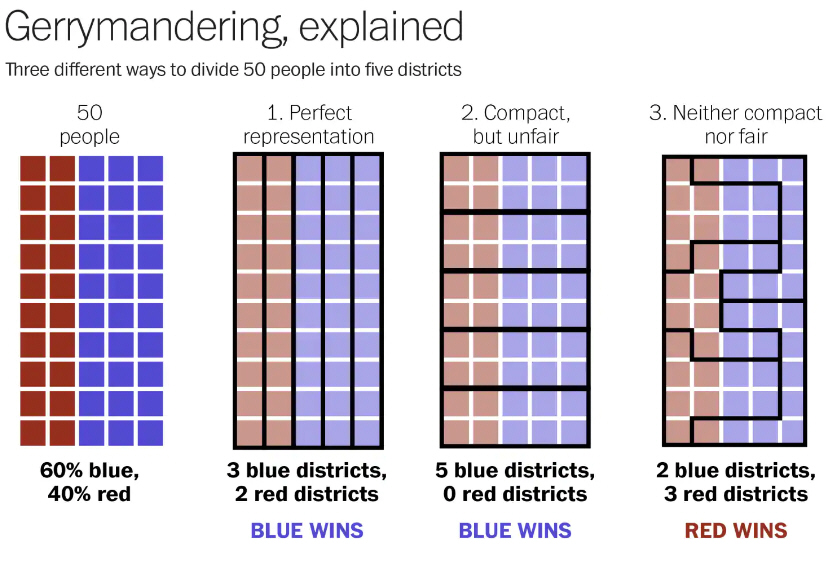 Since 2011, this site has observed Memorial Day by saluting the ordinary yet heroic soldiers, sailors, airmen, and Marines who served and sacrificed, and died for their country.
Since 2011, this site has observed Memorial Day by saluting the ordinary yet heroic soldiers, sailors, airmen, and Marines who served and sacrificed, and died for their country.
It must be said though that many of our heroic dead were, and are, quite extraordinary, and their stories must also be told.
Leading that list is perhaps the most larger-than-life general officer the United States has ever produced. George S. Patton was very much a man for his times, because his time encompassed two world wars. Had he been granted omniscience to view the great sweep of time, I’d posit he’d want to live and serve exactly when he did: honing his tactical and command experience during the First World War, and perfecting them both during the Second. And further, I think he’d want to die when he did: on the cusp of a strange, decades-long non-shooting war that he’d neither condone nor understand.
A career military man, Patton entered the world stage as a junior office in France in 1917. Originally a member of General Pershing’s staff, then an infantry commander, he eventually found his calling in the novel milieu of tank warfare. Ascending to his first tank-corps command in the spring of 1918, he found that he was one of the only Americans who’d actually completed tank training. When his unit took delivery of a trainload of armor, it was left to him to personally drive them off the rail cars.
A brevetted lieutenant colonel by then, he oversaw his brigade’s training and led them into several battles leading up to the Argonne offensive in September 1918. On the 26th of that month, near the French town of Cheppy, he was shot in the leg while leading an attack on a German machine-gun position. While he was recuperating, the November 11th armistice was signed, and the war was over.
Patton spent the interwar years building and refining his ideal American tank corps. He helped write the Army’s manual of tank operations, consulted on new armor designs, and initiated tank crewman training courses at Fort Meade, Fort Myer, and Fort Riley. As a full colonel, he came to the attention of Army Chief of Staff George Marshall. Sensing an impending second European war, Marshall short-listed Patton for promotion to general, but kept him as a regimental commander, thus a colonel, until hostilities broke out.
The United States military was largely demobilized in the years between world wars, but a few forward thinkers in uniform, including George Patton, did their best to prepare for the conflict they knew was on the horizon. In the months after Germany invaded Poland in 1939, Patton helped to hone the nascent armored corps and ready it for combat. In October, 1940 he was given his first star—Brigadier General Patton took acting command of the 2nd Armored Division, and the following April he was promoted to major general, and was made permanent division commander.
His fame grew between then and America’s entry into the war that December, and it was probably during this time that the Wehrmacht general staff took notice. The German military machine never really understood the American democratic model, and it had an almost willful blindness to the notion of civilian control over the military. They couldn’t fathom how a soldier like Patton could be hobbled by civic and political forces. That would prove to be their fatal blind spot.
They understood Patton himself, though, and were concordantly respectful. They knew as well as anyone that America would be entering the war, and they sought to know their enemy. They knew that generals like Marshall and Eisenhower, though formidable, wouldn’t lead from the front, and that MacArthur would be in the east. They were certain that George Patton would be their main foe on the ground in Europe.
For nearly two years, from the first assaults in Morocco through to the invasion and occupation of Sicily, they were correct. Patton proved himself a consummate land-war tactician, winning far more battles than he lost. The invasion of northern Europe loomed, and Patton was as sure as the Germans were that he was destined to lead it.
What happened next was one of the oddest historical quirks on record, and only in retrospect can we know that it just might have won the war. Patton was a soldier, an officer, but he was never quite a gentleman. He was rash, he was impolitic, and he had a knack, off the battlefield, for doing exactly the wrong thing. He put himself in the doghouse repeatedly through careless remarks to the press or in speeches to civilian audiences. Then in August of 1943 he went too far.
He slapped the faces of two privates, both of them suffering from what we now know as PTSD. He called them cowards, and he ordered them back to the front lines.
That he’d be relieved of command for such actions was, again, incomprehensible to the Germans, so they convinced themselves that it had to be misinformation. When he was ordered back to England they were sure it was in preparation for the coming invasion.
Eisenhower was content to let them think that, and went on to pull off one of the most artful deceptions in the history of warfare. In June 1944 Allied forces landed in Normandy and began the drive towards Berlin. Patton was not with them. He’d been given nominal command of an army that didn’t exist—the so-called “Ghost Army.” Artists and model makers created a vast phantom force of canvas tanks and dummy soldiers, centered in the area of Dover, seemingly poised to strike across the Channel at the Pas de Calais.
A constant of amphibious warfare, since before the Persians invaded Athens, is that the defender’s best hope is to stop the invaders while their feet are still wet. The Second World War could have very well been lost on June 6th or June 7th, if the Germans had reinforced Normandy. But they concentrated their forces at Calais. Because that’s where they thought Patton would be.
Patton, of course, would regain battlefield command, leading his fabled Third Army through France and into Germany. They helped save the day during the Battle of the Bulge, joining the effort to turn back the final German offensive. They crossed the Rhine, fought southward through Bavaria, and crossed into Czechoslovakia, nearly making it to Prague, before the Germans surrendered on May 8th, 1945.
Patton hoped to transfer to the Pacific theater while the war with Japan still raged, but was instead made military governor in Munich. During his short post-war career, Patton managed to embarrass himself still more—courting controversy by telling an audience of Gold Star Mothers (mothers of American soldiers killed in action), that those who die on the battlefield are often “fools.” He was also criticized for keeping Nazi party politicians in Bavarian administrative posts.
Sometime between the end of the war and December 1945 he managed to complete his wartime memoirs. Others, including Eisenhower and Churchill, were to write their own histories of the war, but in many cases that took years. That Patton wrote his so quickly has to make you wonder if he sensed his end was near.
On December 8th 1945 General Patton was traveling in a staff car with a few others, in the Rhineland area of Germany. They were struck at low speed by a U.S. Army truck. Patton alone was injured.
That such a man could suffer such a prosaic death has spawned countless conspiracy theories. In truth, it was just rotten luck. At the moment of impact Patton turned around to say something to someone in the back seat. He was in an awkward, twisted position and the impact, though hardly forceful, caused his neck to strike the edge of a partition window. He both fractured and dislocated two cervical vertebrae.
For 12 days General Patton was paralyzed from the neck down. This led to heart failure and pulmonary edema. He died in his sleep on December 21st, the winter solstice.
When I say that I cannot envision what retirement might have looked like for George Patton, that could just be the myopia of historical hindsight. Or it could be an understanding that General Patton simply wasn’t made for retirement. It seems as though he wasn’t made for anything other than war.
General George Patton served his country in his singular fashion through two world wars, and in a way to help define that country as an unequaled military power through to a future he could scarcely have imagined. He did all that he could do, he did it well, and then he was gone. He was never a perfect man, but he very well might have been a perfect soldier, and the nation will always be in his debt.
Likewise we are in the debt of every man and woman, throughout our history, who served and sacrificed. Memorial Day is their day, and that makes it sacred.
Happy Memorial Day. Please don’t ever forget what this day is about.
 It’s hard to say exactly when American democracy died. But June 27th, 2019 might be remembered as the day the U.S. Supreme Court drove a stake in its chest to make damned sure it stayed dead.
It’s hard to say exactly when American democracy died. But June 27th, 2019 might be remembered as the day the U.S. Supreme Court drove a stake in its chest to make damned sure it stayed dead.
 At some point, the onward trudge of technology has taken on more of a steamroll presentation, and much of the nextgen whatever-it-is brings far less progress to society and much more churn. It’s like the rote Silicon Valley diktat, “disrupt things,” has become the marching orders for a doomsday cult. They don’t even need to pretend they’re building consumer ware anymore. They’re hacking the culture for no better reason than to see what might happen—and they’re absolutely sedate with the understanding that we know that’s what they’re doing.
At some point, the onward trudge of technology has taken on more of a steamroll presentation, and much of the nextgen whatever-it-is brings far less progress to society and much more churn. It’s like the rote Silicon Valley diktat, “disrupt things,” has become the marching orders for a doomsday cult. They don’t even need to pretend they’re building consumer ware anymore. They’re hacking the culture for no better reason than to see what might happen—and they’re absolutely sedate with the understanding that we know that’s what they’re doing. Since 2011, this site has observed
Since 2011, this site has observed  Are we barreling toward the impeachment of a president? Should we be?
Are we barreling toward the impeachment of a president? Should we be?
 A genuine legend passed away today.
A genuine legend passed away today.  One of the most important legal precedents in American political history is the United States v. John N. Mitchell. In the aftermath of Watergate, our 67th Attorney General was charged, tried, and found guilty of perjury, conspiracy and obstruction of justice. He was sentenced to a maximum of eight years imprisonment, which was reduced by half on appeal. He served 19 months.
One of the most important legal precedents in American political history is the United States v. John N. Mitchell. In the aftermath of Watergate, our 67th Attorney General was charged, tried, and found guilty of perjury, conspiracy and obstruction of justice. He was sentenced to a maximum of eight years imprisonment, which was reduced by half on appeal. He served 19 months.
 It’s never too early for electoral predictions, and the 2020 presidential election is just 19 months away. Let’s go on the record with a Deconstruction of political prognostications….
It’s never too early for electoral predictions, and the 2020 presidential election is just 19 months away. Let’s go on the record with a Deconstruction of political prognostications….
 For the first time ever, we have a picture of a black hole. Behold the supermassive space-time phenomenon that lies at the heart of galaxy M87, 55 million light-years from earth.
For the first time ever, we have a picture of a black hole. Behold the supermassive space-time phenomenon that lies at the heart of galaxy M87, 55 million light-years from earth. Lifetime guaranteed employment sounds like a concept from an earlier age, or perhaps something that never existed at all.
Lifetime guaranteed employment sounds like a concept from an earlier age, or perhaps something that never existed at all. Their proposal in this case is to collect the prize money offered by Public Art Agency Sweden and the Swedish Transport Administration, intended for art installations at the still-under-construction Korsvägen station, and invest the sum (about $650,000) in both international and domestic Swedish securities. Per their projections, by the time the station opens in 2025, the account should have grown to the point of supporting the employment of one person, at fair living wages plus competitive benefits, in perpetuity.
Their proposal in this case is to collect the prize money offered by Public Art Agency Sweden and the Swedish Transport Administration, intended for art installations at the still-under-construction Korsvägen station, and invest the sum (about $650,000) in both international and domestic Swedish securities. Per their projections, by the time the station opens in 2025, the account should have grown to the point of supporting the employment of one person, at fair living wages plus competitive benefits, in perpetuity. no job requirements, and no real job description. The worker will be required to report to Korsvägen, and punch a time clock which switches on a set of terminal lights. After this, the workday consists of “no duties or responsibilities besides the fact that the work should be carried out at Korsvägen. Whatever the employee chooses to do constitutes the work.”
no job requirements, and no real job description. The worker will be required to report to Korsvägen, and punch a time clock which switches on a set of terminal lights. After this, the workday consists of “no duties or responsibilities besides the fact that the work should be carried out at Korsvägen. Whatever the employee chooses to do constitutes the work.” It’s really quite impressive how many of us can go around with a copy of the U.S. Constitution in our hip pocket, yet still have no idea what it does and does not say.
It’s really quite impressive how many of us can go around with a copy of the U.S. Constitution in our hip pocket, yet still have no idea what it does and does not say. But maybe a U.S. congressman might understand how the Constitution works? You wish.
But maybe a U.S. congressman might understand how the Constitution works? You wish.